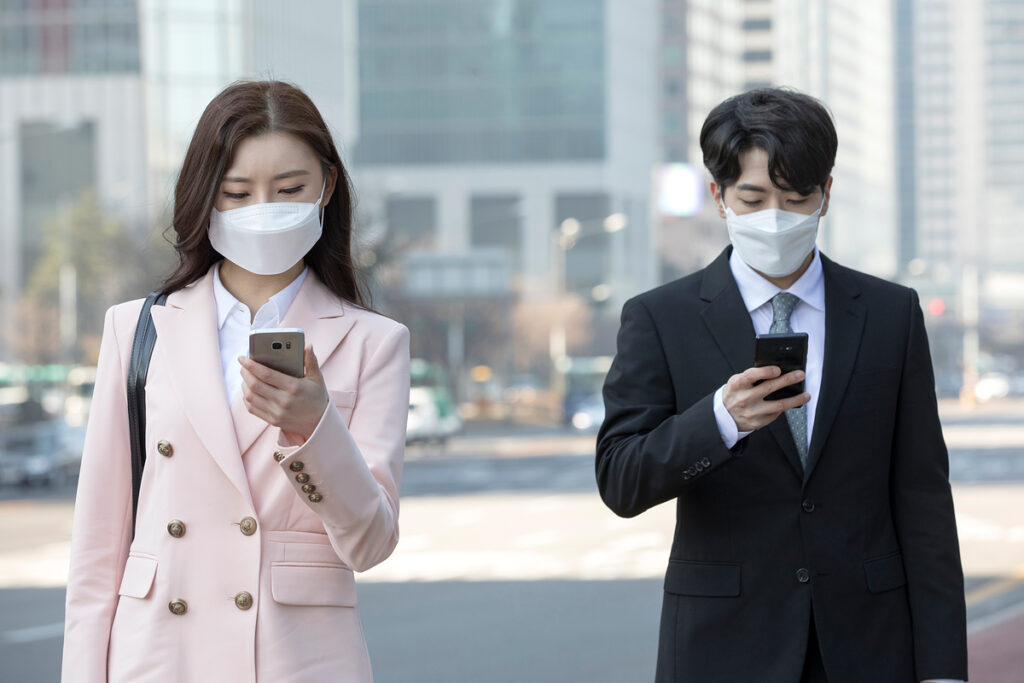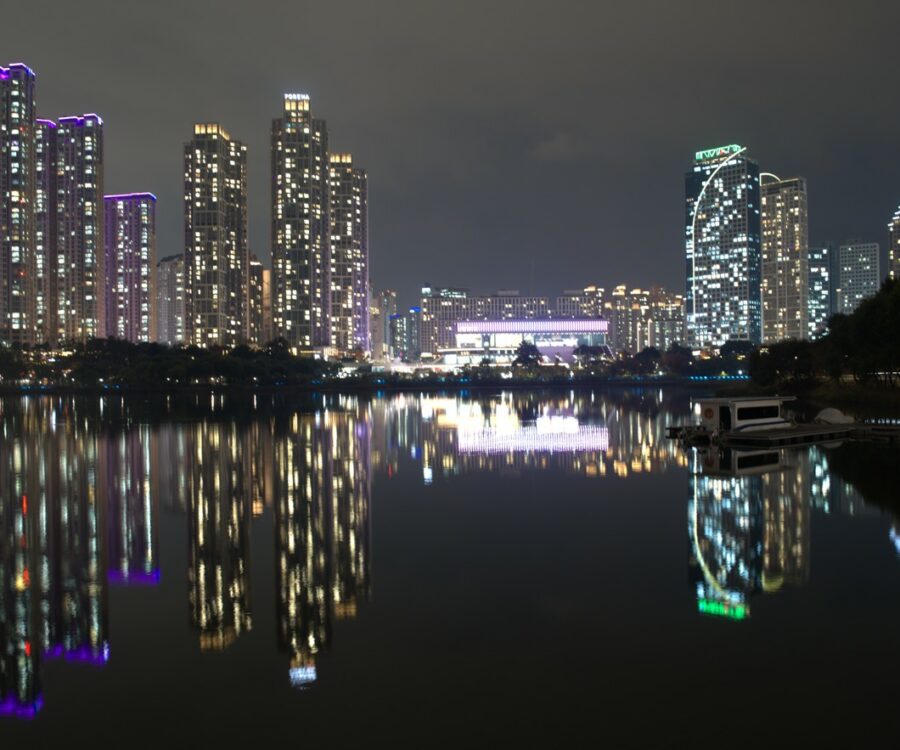Korea lifted its mask mandate at the end of January after nearly three years, and while some expats living in the country were looking forward to finally removing the masks, Koreans do not seem to have changed the habit they adopted during the pandemic. Furthermore, not wearing a mask will make the person stand out in the crowd and may even attract judgmental stares. Some individuals who are pro-masks feel so strongly about their benefits that they even take to the streets with banners, demanding that masks become a permanent part of daily life. In contrast, in Western countries, wearing a mask when there is no requirement imposed is seen as unusual. Why so?

1. Face masks before COVID-19
Firstly, wearing masks was generally well-accepted and common in South Korea, even before the COVID-19 pandemic. In fact, South Korea has a long-standing culture of wearing masks during the flu season. The same practices are common in the other Asian countries such as Japan and China. In these countries, it is considered a courteous and responsible behavior to wear a mask when one is feeling unwell or when there is an outbreak of contagious diseases.
The other major reason is the ongoing problem of air pollution, which has been a significant issue in South Korea since the 2010s. Microdust or yellow dust can cause harm and result in respiratory illnesses and allergies. As such, wearing a mask is essential to protect oneself from breathing in the microscopic particles of the it.

2. Face masks as a habit
In Korea, masks are still (as of February 2023) required in public transport and high-risk facilities, including hospitals and pharmacies. Some people prefer to avoid the hassle of taking them on and off depending on their location, so it is just easier to keep the masks on at all times.
Other people claim that wearing a mask has now become a habit that is hard to break. It is now almost as reflexive as bowing when greeting someone of a higher rank or a senior.
3. A feature of the collective culture
In some cases, people in Asia may feel pressured to wear masks in public spaces to conform to social expectations or norms. Wearing a mask can help demonstrate one’s commitment to the well-being of the community and can signal a willingness to follow social norms and expectations.
In individualistic cultures in the West, individuals are encouraged to be independent, pursue their own interests and goals, and take responsibility for their own actions and decisions. This is in contrast to collective cultures in the East, where a greater emphasis is placed on group goals, harmony, and interdependence. Therefore, individuals are expected to behave in ways that do not potentially cause harm or discomfort to others and avoid causing shame or loss of face for themselves or their group. For this reason, wearing a mask is considered as good etiquette.
The difference between these two cultural orientations stems from a variety of factors, including historical, economic, and social contexts. In Asia, the influence of Confucianism and other traditional cultural values has promoted a strong emphasis on the importance of social harmony, duty, and respect for authority.
4. Wearing a mask gives Koreans comfort
Part of the Korean population take advantage of the fact that they don’t have to wear makeup anymore.
According to Sangmin Kim, a scholar in cultural studies at CATS Lab (a research center in Seoul) who has written about masks, masks have allowed many South Koreans to alleviate the societal pressure of maintaining a certain level of facial beauty, and people feel more comfortable having their faces covered and experience discomfort when revealing their bare faces.
5. Face masks as a new fashion accessory
Face masks have become a fashion item in South Korea in recent years, particularly during the COVID-19 pandemic. Many South Korean fashion brands and designers have started to create unique and stylish masks that not only protect against infectious diseases but also make a fashion statement. For example, there are now many mask brands in South Korea that design and sell masks with unique designs, such as floral patterns, animal prints, and K-pop designs.
In South Korea such masks have become popular among young people, who see them as an essential part of their looks and often coordinate their masks with their outfits.
In addition to fashion brands, K-pop idols have also popularized the trend of wearing stylish masks. Many K-pop idols are seen wearing unique and colorful masks during performances or in their daily lives, and their fans often seek out similar masks to wear.
The popularity of fashionable masks in South Korea has also created a new market for mask accessories, such as mask chains, mask holders, and mask cases. These accessories are designed to help people keep their masks clean and organized while adding a stylish touch.

In conclusion, the reluctance of many Koreans to take off their masks is rooted in a complex interplay of cultural, social, and practical factors. While the habit of wearing masks was initially adopted as a means of preventing the spread of disease, it has become a normalized aspect of daily life in Korea. For some, the mask provides a sense of comfort, while for others, it is a symbol of social responsibility and respect for others. Regardless of the reasons, it is clear that masks have become an integral part of Korean culture, and their use is likely to continue long after the pandemic has subsided.



